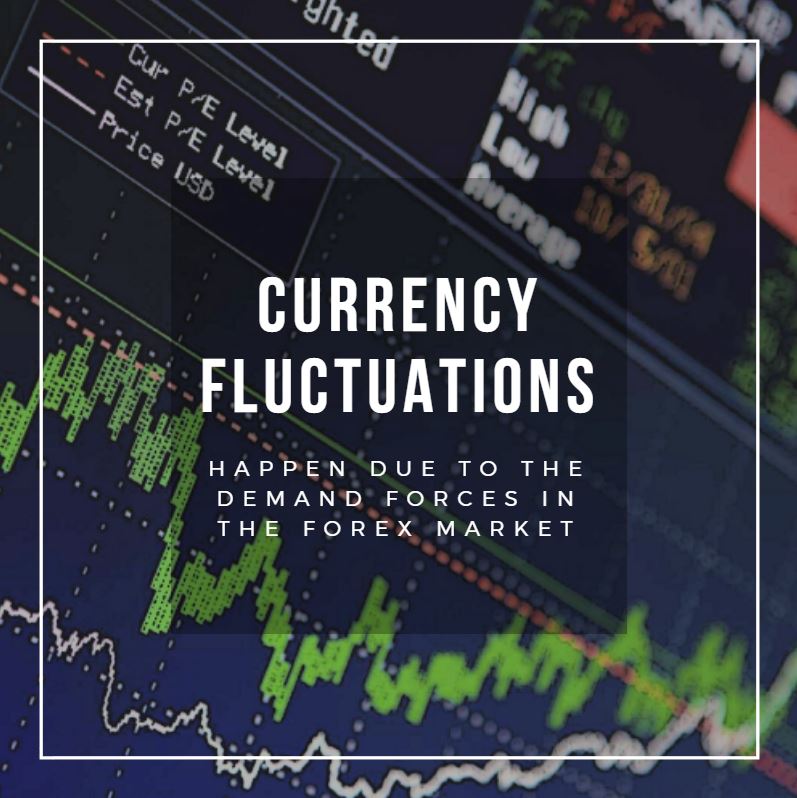5 Effects Of Currency Fluctuations On The Economy
Economics / Economic Theory May 21, 2018 - 05:25 AM GMTBy: Submissions
Currency fluctuations are some of the most analyzed aspects of any economy. Slight changes in the value of a currency can send reverberations across the economy. In fact, some currency fluctuations levels can have drastic effects on the health of an economy. Markets like forex and other trading sectors are heavily reliant on how strong or weak a particular currency is. The strength of a currency can also determine how a particular country handles international trade. Indeed, five of the strongest currencies in the world are so influential in the world that many aspects of the global economy are almost tied to them. There are several effects of fluctuations of currencies. Below are some of the most important.

1. Changes the market competitiveness
Fluctuations in the currency either takes the form of a strong currency or a weak currency. When the currency becomes strong for an extended period of time, the economy can experience internal pressure. This can lead to dormancy and reduced competitiveness. These factors can in turn cause job losses and an overall economic slowdown. A weakened currency, on the other hand, might attract investment but leave the economy in a vulnerable position at the hands of big investors. In general, fluctuation currencies affect the competitiveness of the market and the vibrancy of the economy.
2. Changes in investment levels
A fluctuating currency can also affect investments in a major way. Both foreign direct investments and local business depend on a stable currency. An unpredictable currency is a cause of concern for investors especially those who might be looking for a long-term presence in the economy. While a weakened currency is usually a major pull for foreign investment, a currency that tends to change in value quickly has the opposite effect. All investors hope to gain profit after a certain amount of time. When the currency is changing so much, it becomes difficult to arrive at specific timeliness. Local business also suffers a lot under a fluctuating currency. Traders might tend to either hold on to their commodities or sell them at detrimental prices.
3. Creates volatility in the economy

With a lot of currency fluctuation, the market becomes highly unpredictable and both local and foreign trade is affected. The exchange of securities is especially affected since it mostly depends on the value of the currency. Volatility is not always bad, especially in currency exchange. Its effects can, however, be dire when measures are not taken to keep it under control. The economy can suffer a lot and the returns to investment can be lower due to higher risks.
4. Affects inflation
Inflation is the general price of goods in the market. Currency fluctuation can affect an economy in various degrees. Depending on the general trading patterns of an economy, currency fluctuation can lead to either minimal levels of inflation or huge levels of inflation. Most countries that have high levels of local production and consumption are usually not affected by inflation a lot when the currency fluctuates. Economies that rely on imports, on the other hand, can experience huge inflation levels when the currency fluctuates. This is especially in cases where the fluctuation leads to a devalued currency. The resulting inflation levels can affect other areas of the economy and take a long time to correct.
5. Affects lending
Finally, changes in currency affect the interest rates as well as lending. The monetary policy of any economy depends on the exchange rates of the currency. Most central banks take a keen interest in the performance of both local currencies and foreign currencies. By observing the trends in the market, policy designers can be able to come up with policies that are good for the economy. If a currency is strong, the interest rates become high. High interest rates discourage lending and lead to a slowdown in the economy. A strong currency can thus force monetary policy formulators to come up with measures that could bring in more foreign currency.

Currency fluctuations happen due to the demand forces in the forex market. These fluctuations are thus natural and come as a result of the market. The fluctuations, however, have huge ramifications for the economy. Most aftereffects of currency fluctuations are not particularly bad but some can affect the economy immensely.
By Andrew Cioffi
© 2018 Copyright Andrew Cioffi - All Rights Reserved Disclaimer: The above is a matter of opinion provided for general information purposes only and is not intended as investment advice. Information and analysis above are derived from sources and utilising methods believed to be reliable, but we cannot accept responsibility for any losses you may incur as a result of this analysis. Individuals should consult with their personal financial advisors.
© 2005-2022 http://www.MarketOracle.co.uk - The Market Oracle is a FREE Daily Financial Markets Analysis & Forecasting online publication.



